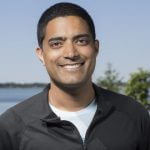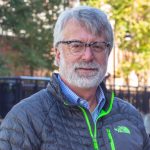We the People of Detroit
Detroit, Michigan
In 2008, We The People of Detroit (WPD) was co-founded by Chris Griffith, Aurora Harris, Monica Lewis-Patrick, Cecily McClellan, and Debra Taylor in response to Emergency Management over the city of Detroit and Detroit Public Schools. As a community-based grassroots organization, WPD aims to inform, educate, and empower Detroit residents on imperative issues surrounding civil rights, land, water, education, and the democratic process. We the People of Detroit is dedicated to community coalition building and to the provision of resources that inform, train and mobilize the citizens of Detroit and beyond to improve their quality of life.
Co-founder Monica Lewis-Patrick was recognized as a River Hero at River Rally 2019.
Our original interview with Monica was published on August 28, 2018; the transcript appears below. In January 2022, we spoke again with We the People of Detroit to get an update on their work.
2022
A lot of groups across the network explored new programs during COVID. Was this true for We the People of Detroit?
In collaboration with water justice organizations in the Midwest, we spearheaded getting technology to those who were most impacted by social injustice, and don’t have the resources to empower themselves and take ownership over their situations. In this effort, we established The Blue Network. We worked with the Flint Development Center and Toledo Junction Coalition, implementing technology in groups’ locations to help them communicate with each other and their communities throughout the pandemic and well into the future. We also set up other hubs to help folks file for assistance and access other resources that they otherwise would struggle to acquire.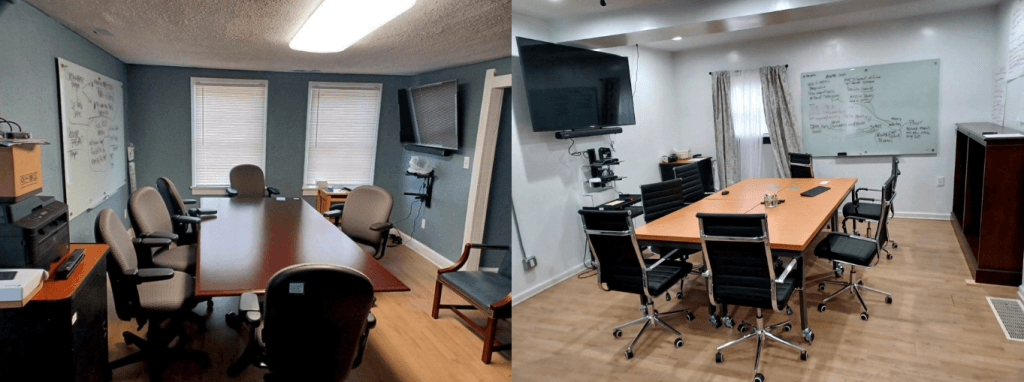 We’ve also been bringing technology access into our youth programs. 70% of Black folks don’t swim. There are basic things like swimming that some communities take for granted, yet many communities of color are not provided with the resources to take advantage of these amenities. While these are the communities that are experiencing severe weather impacts, their only interaction with water is through trauma. So, we’re doing things like exposing young people experiences and opportunities beyond what they would expect, such as 3D printing technology, water sports and activities, as well as water science. At the Great Lakes People of Color Water Center they will spend the first few weeks of the summer building jetskis, then we’ll take them out on the water. It’s a way to respirit youth of color and get them engaged with water in a recreational, fun, positive way. The technology aspects also bring young ingenuity to the water sector, and it was amazing to see them begin to come to life. For example, our staff member Tiana’s daughter participated, and was not sure about it at the beginning, but by the end of the week she was all about it.
We’ve also been bringing technology access into our youth programs. 70% of Black folks don’t swim. There are basic things like swimming that some communities take for granted, yet many communities of color are not provided with the resources to take advantage of these amenities. While these are the communities that are experiencing severe weather impacts, their only interaction with water is through trauma. So, we’re doing things like exposing young people experiences and opportunities beyond what they would expect, such as 3D printing technology, water sports and activities, as well as water science. At the Great Lakes People of Color Water Center they will spend the first few weeks of the summer building jetskis, then we’ll take them out on the water. It’s a way to respirit youth of color and get them engaged with water in a recreational, fun, positive way. The technology aspects also bring young ingenuity to the water sector, and it was amazing to see them begin to come to life. For example, our staff member Tiana’s daughter participated, and was not sure about it at the beginning, but by the end of the week she was all about it.
What else have you been working on with youth?
Last summer we worked with We the Youth of Detroit, and the youth really were able to take ownership of the work they were doing in the community. Their goal was to collect water samples, to partner with the Flint Development Center, so youth could understand the science, do it themselves, and learn about environmental justice career paths. In the end, we were able to do the social justice work to help the community understand their water, but also help empower the youth beyond the community level. When we had summer flooding in Detroit, the youth saw this and its impact, and wanted to do more in that area. It was cool to see them take ownership and lead the project. Learn more about this project in this video.
We the Youth of Detroit Water Testing from Kate Levy on Vimeo.
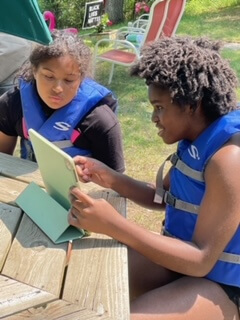 We also launched the Great Lakes People of Color Water and Policy Center. Even before COVID, we were dealing with high numbers of police brutality and recognizing our community didn’t feel safe. As we got closer to 2018 and 2019, the atmosphere ratcheted up in terms of structural environmental racism. Idlewild has a long history as a safe place to be together and commune with nature, and we started looking at how to keep it in the community, to have a safe place to go. In our community we already experience this severe inequity around water affordability. We also know water system operators are retiring and there’s not enough investment in preparing the next generation of the workforce to maintain our infrastructure. So we want to bring our children together to talk through the trauma we’ve experienced, and figure out a way to give them a historical grounding in the policies that created these inequities AND tools to navigate science, data, and research, to be in those conversations and introduce career paths. At the Center we’re providing trainings around water: lifeguards, swimming, boating, etc. We’re also broadcasting in the lab so youth can learn to televise by giving them the tools to create their own communications. Many of our communities have low trust because the government has covered up inequities and pollution, but young people respond to other young people.
We also launched the Great Lakes People of Color Water and Policy Center. Even before COVID, we were dealing with high numbers of police brutality and recognizing our community didn’t feel safe. As we got closer to 2018 and 2019, the atmosphere ratcheted up in terms of structural environmental racism. Idlewild has a long history as a safe place to be together and commune with nature, and we started looking at how to keep it in the community, to have a safe place to go. In our community we already experience this severe inequity around water affordability. We also know water system operators are retiring and there’s not enough investment in preparing the next generation of the workforce to maintain our infrastructure. So we want to bring our children together to talk through the trauma we’ve experienced, and figure out a way to give them a historical grounding in the policies that created these inequities AND tools to navigate science, data, and research, to be in those conversations and introduce career paths. At the Center we’re providing trainings around water: lifeguards, swimming, boating, etc. We’re also broadcasting in the lab so youth can learn to televise by giving them the tools to create their own communications. Many of our communities have low trust because the government has covered up inequities and pollution, but young people respond to other young people.
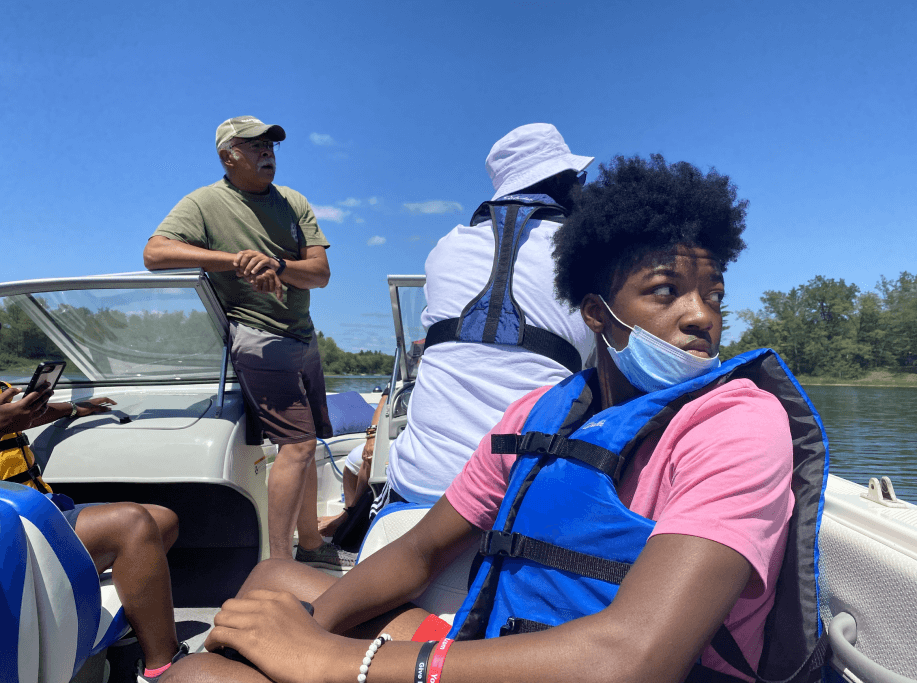
These skills are transferable to other priorities too, and involve art and culture; Justin at WPD is working with youth on ideas around bringing their thoughts about social justice to life through animation and storytelling. Right now they’re creating anime type characters and putting them in social justice settings, making it relatable. Last summer they learned from a BBC documentarian, who showed them how to pull together components for a documentary film, and they’re working on putting something together based on water justice.
WPD has done a lot of community/citizen science work that is now getting national recognition. Can you tell me about these projects and the change they’re informing?
There’s a lot of work coming out of Michigan from Dr. Jen Reed, with analyses on water affordability and racialization across Michigan. We were instrumental a few years ago working with the Mott Foundation to raise attention on this and get scientists and researchers letting the data lead, pairing citizen science with researchers to take it further. Now, it’s critical research, affirming what activists have been saying for decades.
Dr. Sara Hughes has a piece looking at austerity in Michigan with emergency managers, who play a critical role in divesting in water systems, which is what led to Flint and Benton Harbor, another lead crisis. She ties these pieces together.
We’ve really been able to leverage our network and now our founders have grown the academic work they started with, creating a presence beyond the grassroots movement. Cecily McClellan, Dr. Nadia Gaber and Professor Emily Kutil have become authorities in the water space. As an example, we were doing a community webinar with Dr Peter Hammer, Mary Grant, and others from the greater water arena, and now the webinar has been published too. Tiana Starks, our Director of Communications really shaped how it was presented to the community, demonstrating the community had been saying these things about their water for years. We were able to lift up the collective work, and show that it came out of their struggle, the whole community. It’s about building those coalitions and the vast body of knowledge so that the collective community is participating in their own well-being.
In 2018 we asked what water-related accomplishment you were most proud of. How would you answer that question now?
I think we’ve got to take a victory lap in terms of being able to force the administration and the City of Detroit and the Mayor, and give courage to the Governor, to enact a water shut-off moratorium. They didn’t have the political will before the pandemic and it was the collective work of water warriors across Michigan to stand boldly to say, especially during a global pandemic, you can’t shut the water off—not just in Michigan, but across the country.
I’m also proud that our young people have used their own power and own voice to lift up issues around lead and water issues in their schools. They organized a walkout that brought national attention to water quality issues in schools, and now there’s a task force specifically looking at school water quality.
Lastly, I’d thank our Representative Rashida Tlaib, for taking WPD: Community Research Collective and lifted it to a national stage. Our research showed that shutting off water had exacerbated the spread of COVID, and she shared this with the Centers for Disease Control, which led to them talking about the connection between shutoffs and the spread.
We also asked before, “what positive changes would you like to see in your community over the next 10 years?” You spoke then about water affordability. Have you seen any change?
We are still in this place; we still have not achieved water affordability in Detroit and the state of Michigan. So, that is still our focus: to win that issue. Our children and our community are counting on us. What’s promising is that it has gone from just something on the lips of activists to, over the last four years, it has played a major role in conversations around water infrastructure, the pandemic, and the American Recovery Act.
2018
Did you grow up around water? What are your fondest early memories of water?
I grew up around the Holston River, which runs through my hometown of Kingsport, Tennessee. We had a complex relationship with the river as it ran past a chemical company, so there wasn’t a good place to swim or fish. One positive interaction I recall is a portion of the river that ran through Warrior State Park; we had the ability to be around water with limited toxicity.
When did you first realize that you wanted to stand up for rivers?
It was more of an evolution than a moment. In 2010 I was working for Councilwoman Watson and I was challenged to organize a protest around internal operations of Detroit Water and Sewage. The campaign was called “Hands Off Our Water,” and 5,000 people showed up for the protest. My consciousness was raised around policy threats to water. Then in 2014, thousands of homes were shut off to water and I realized that water is a human right. I started working in Flint in 2015 and recognized the critical need to protect all water sources.
Why is protecting rivers important to you now?
Today, I understand that water is a delicate ecosystem and must be protected on all fronts by isolating individual bodies of water, but also understanding the interconnectedness of all water.
What has your experience been like working for River Network? How has River Network helped you achieve your goals?
River Network has been instrumental in taking citizens-based research and giving it validity. Bringing us to the table with stakeholders that we hadn’t been able to interface with before, and then raising the social justice component through Nicole’s leadership. And even being in a space where people approach water from a conservation view presents an opportunity to raise the collective consciousness around all the ways we approach water. I applaud Nicole and River Network in terms of constantly reaching out, being a partner for us, and bringing us training that helps us be more effective in what we do.
What water-related accomplishment are you most proud of?
First is the We the People community research collective. We were able to mobilize and collect ourselves with scholars and academics to produce a book called Mapping the Water Crisis. And the second is that We the Youth of Detroit just graduated our fourth social justice summer internship class. In this program the kids do a week of work around water, a week on social justice, a week on social organization, LGBTQ, immigration rights, etc. Of all the amazing training they received, they presented work on water. For them to grasp all the critical pieces of water issues goes to the bedrock of what WTP wants to fight for.
What positive changes would you like to see in your community over the next 10 years?
That’s a laundry list for me! At the top, I would like to see a state water affordability plan. I would also like to see policies and ecofriendly methodologies for updating our water infrastructure, decentralizing sanitation systems and looking at things like what Bob Zimmerman did in Boston to remediate wastewater. Also, power-mapping our state system, being intentional about K-12 curriculum to teach stewardship and respect for water, and using recreational experiences to uplift people’s consciousness around water and our responsibility to protect it.







